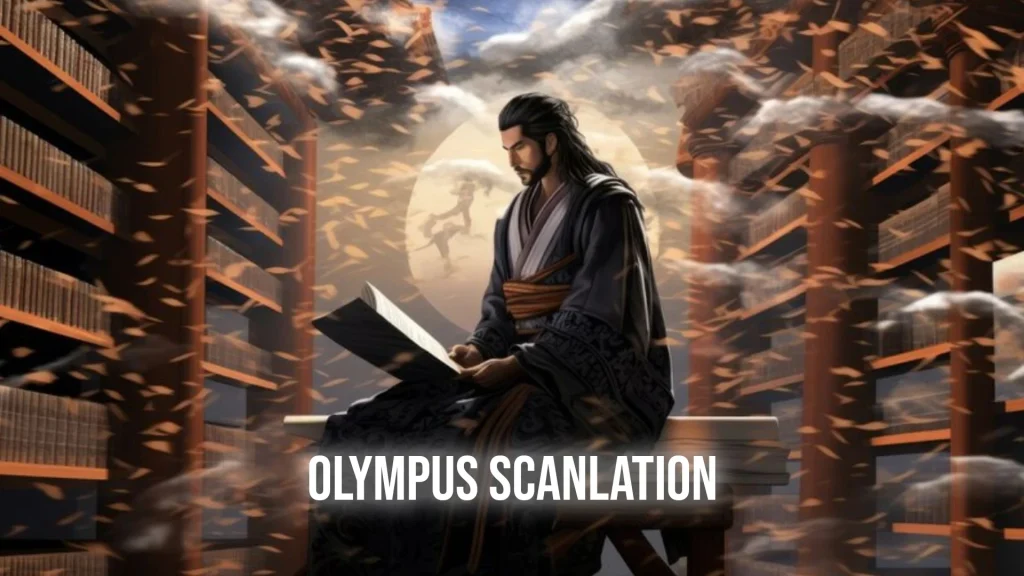In the world of manga, scanlation groups play an essential role in bringing non-English manga titles to audiences who otherwise would have limited access. One such group, Olympus Scanlation, has emerged as a prominent player, known for its dedication to quality translations and an impressive catalog of manga that appeals to a broad range of fans. Olympus Scanlation serves as a bridge between Japanese manga creators and English-speaking fans, connecting cultures through the passion of storytelling.
What is Olympus Scanlation?
Olympus Scanlation is a fan-operated group that takes raw manga material—typically in Japanese—and translates it into English, making it accessible for a broader audience. Like many scanlation groups, Olympus operates within a unique space, as manga scanlation is a gray area in terms of legality. While publishers and creators traditionally have the sole rights to distribute their content, scanlation groups like Olympus argue that they are simply bringing otherwise unavailable content to eager fans who might never have the chance to read these works.
The Mission of Olympus Scanlation
Olympus Scanlation’s mission is twofold: they aim to share quality manga that hasn’t yet been officially translated and promote the appreciation of diverse stories from Japan. They believe in making manga available to readers who may not understand Japanese, and they do so by carefully translating, editing, and presenting works that retain the original’s spirit.
Their translations cover a variety of genres, from romance and slice-of-life to fantasy and horror, catering to a wide range of readers with different interests. Olympus often targets lesser-known manga that may not be on the radar for mainstream licensing, offering a chance for hidden gems to reach a broader audience.
The Scanlation Process
The scanlation process requires a group effort. Olympus Scanlation’s team includes several roles: translators who translate the Japanese text into English, editors who refine the translation, and typesetters who format the English text within the manga panels. Some scanlation projects also require a “cleaner” to digitally erase the original Japanese text and prepare the pages for typesetting. These tasks demand precision and artistic care, ensuring that each chapter looks polished and reads smoothly.
Each role is essential in delivering a cohesive, enjoyable reading experience for fans. Olympus has built a reputation for high-quality work that rivals, if not matches, some official translations, ensuring readers get an experience as close as possible to the intended Japanese version.
Challenges and Controversies
While Olympus Scanlation fills an important niche, they also face various challenges. The legality of scanlation is an ongoing debate. Technically, translating and distributing manga without a license is a form of copyright infringement. Some Japanese publishers and authors have voiced concern over scanlation, as it can impact revenue and discourage official licensing in certain regions.
However, Olympus Scanlation, like many scanlation groups, often ceases distributing works if they become officially licensed in English. Many fans also support the original creators by purchasing official merchandise, volumes, and other manga-related products whenever possible. The debate around scanlation remains complex, with strong arguments on both sides.
The Olympus Community and Its Impact
One of the most notable aspects of Olympus Scanlation is its community. They have created a welcoming space for manga fans, allowing readers to share their thoughts, recommend series, and discuss various manga tropes and plotlines. Through forums, social media, and fan communities, Olympus fosters engagement and encourages readers to support manga culture and creators, even from afar.
By focusing on providing high-quality translations, Olympus Scanlation has become a trusted source for manga enthusiasts seeking new titles. They introduce readers to series they might not have found otherwise, creating an environment that celebrates manga diversity and creativity.
The Future of Olympus Scanlation
The future for Olympus Scanlation and similar groups is somewhat uncertain, as the industry has evolved with more official translations available through online platforms. Manga publishers have increasingly tapped into the English-speaking market with faster, more accessible releases. Despite this, Olympus continues to hold a significant role for niche and overlooked titles, remaining relevant by focusing on works that may not yet have official translation prospects.
As more readers and publishers recognize the value of immediate, quality translations, Olympus Scanlation and its community are likely to adapt, either by working within new licensing agreements or continuing to focus on rare, underrepresented manga. Their dedication and passion contribute immensely to the global appreciation of manga and the promotion of Japanese culture worldwide.
Conclusion
Olympus Scanlation exemplifies the positive impact of fan-driven communities, bringing readers unique and quality manga experiences. With their commitment to high standards and an inclusive community, Olympus Scanlation has become a beloved resource for manga fans. As they move forward, Olympus will continue to play a crucial role in expanding access to manga, helping more readers worldwide discover and enjoy the stories they love.



